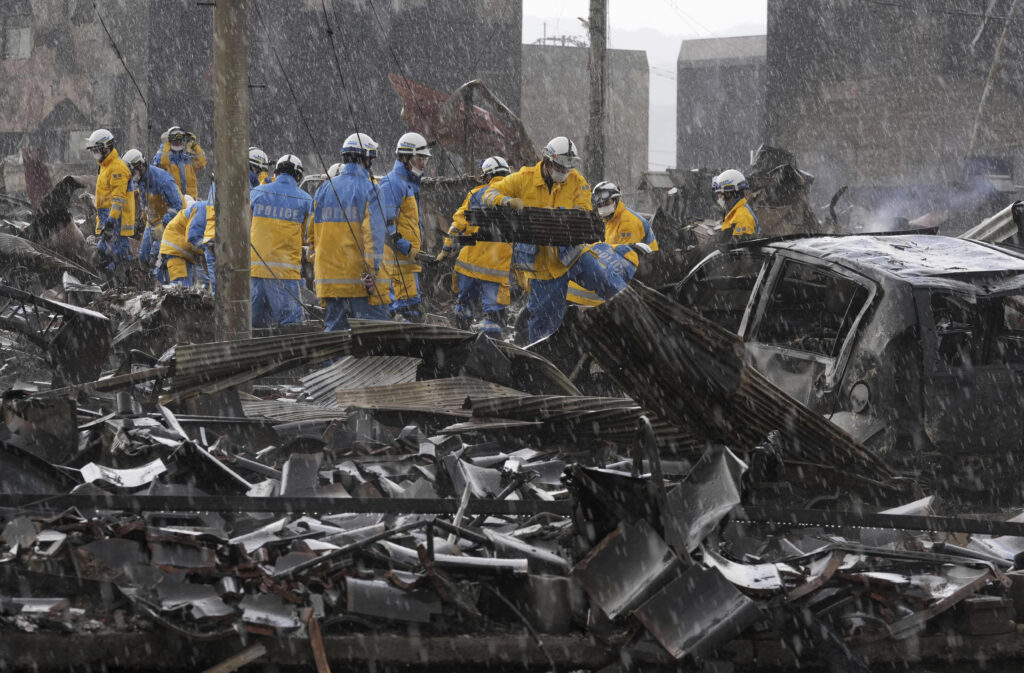Does travel insurance cover earthquakes?
LOS ANGELES – Travel insurance is crucial when traveling to earthquake-prone destinations, providing coverage for trip cancellations, medical expenses and other unforeseen costs resulting from earthquakes.
A powerful earthquake struck central Japan on New Year’s Day, triggering a tsunami alert and leading to significant destruction and loss of life.
Just yesterday, Jan. 5, a 4.2 magnitude earthquake rattled Southern California – the second one this week, according to the US Geological Survey.

Police officers remove the debris from a fire at a market in Wajima, Ishikawa prefecture, Japan Saturday, Jan. 6, 2024. A series of powerful quakes set off a large fire in the town of Wajima, as well as tsunamis and landslides in the region. Image: Kyodo News via AP
Yonder Travel Insurance sheds some light on how travel insurance protects against earthquakes and the importance of purchasing travel insurance if your destination is subject to natural disasters.
Does travel insurance cover earthquakes?
The good news is that most travel insurance plans provide a 100 percent reimbursement of your unused trip cost under trip cancellation or trip interruption coverage if your home residence, destination, vacation accommodations or trip departure are affected by a natural disaster and you have to cancel your trip or return home early.
Most travel insurance plans consider covered natural disasters to include:
- Earthquakes
- Tsunamis
- Hurricanes
- Tornados
- Wildfires
What other benefits should you consider?
Should you encounter an earthquake during your trip, benefits like medical expense, medical evacuation and missed connection coverage could be valuable.
If you were to get injured or need to be medically evacuated following an earthquake during your trip, travel insurance could foot the bill.
Missed connection is a benefit that would cover additional expenses to catch up with your cruise or tour if you miss the initial departure due to a flight delay caused by a natural disaster.
“If you’re visiting destinations prone to earthquakes, it’s best to find a policy that includes non-medical evacuation coverage,” says Terry Boynton, co-founder and president of Yonder Travel Insurance.
Not all plans include this benefit, but it could pay to evacuate you to the nearest place of safety if you have to leave your destination due to a natural disaster like an earthquake or tsunami.
“The key takeaway is purchasing travel insurance soon after making your first trip payments or deposits to ensure you have coverage against unexpected natural disasters like earthquakes,” says Boynton.
Coverage won’t apply if you try to purchase travel insurance after a natural disaster occurs at your destination.

